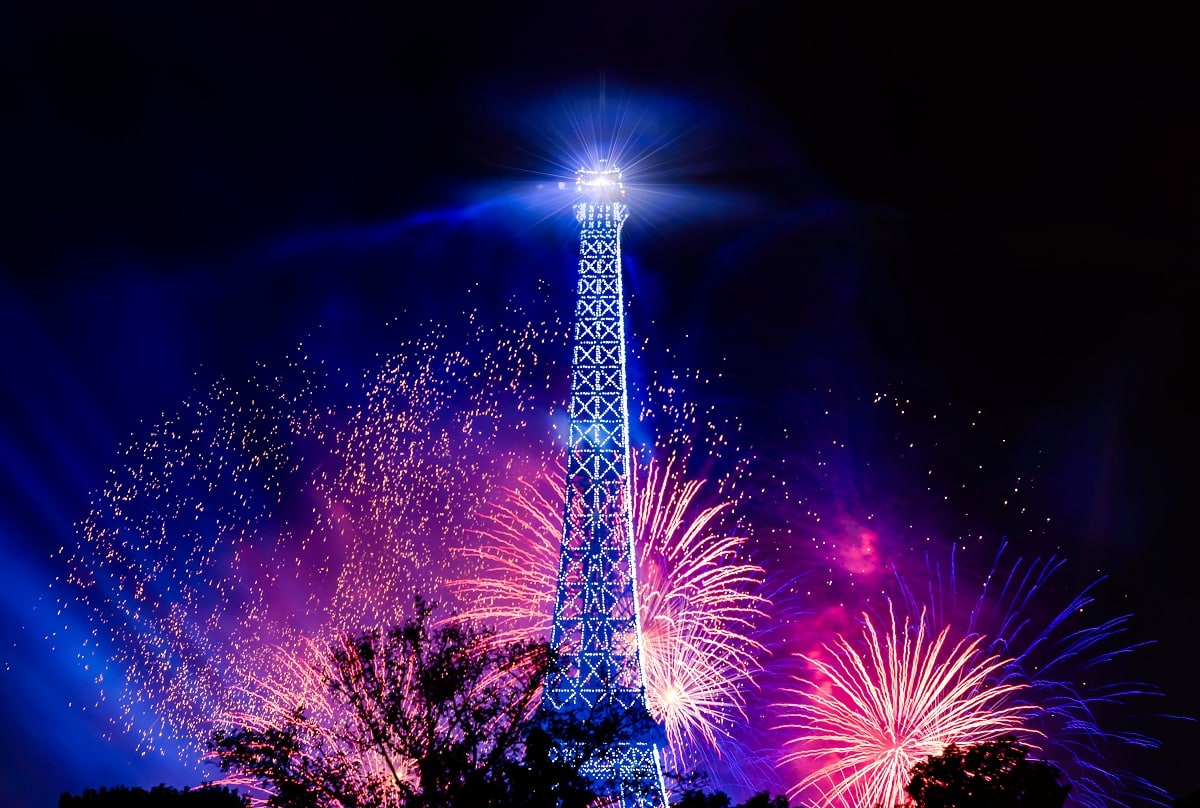Bastille Day Facts and Statistics for 2025
Last Updated on: May 29th, 2025
Here are a few of the most interesting Bastille Day facts and statistics I was able to dig up in my internet travels. As always, be sure to check back in the future as I will be updating this post as new and updated stats become available.

Photo by Anthony DELANOIX on Unsplash
Bastille Day is a French national holiday celebrated on July 14 each year, marking the anniversary of the storming of the Bastille fortress-prison in Paris during the French Revolution in 1789. The day is also known as “La Fête Nationale” or “Le Quatorze Juillet” (the 14th of July).
The Bastille was a symbol of royal tyranny and oppression, and the storming of the fortress by a mob of Parisians on July 14, 1789, marked a turning point in the French Revolution. The fall of the Bastille was a key moment in the struggle for liberty, equality, and fraternity in France, and is seen as the birth of the modern French nation.
The storming of the Bastille was followed by a wave of revolutionary fervor, as people across France rose up against the monarchy and aristocracy, leading to the overthrow of the old regime and the establishment of a republic. The French Revolution brought significant changes to French society, including the end of the monarchy, the establishment of democratic government, and the introduction of new ideas of liberty and equality.
Today, Bastille Day is celebrated throughout France and around the world with parades, fireworks, and other festivities. It is a time for the French people to reflect on their history, celebrate their culture, and reaffirm their commitment to the principles of liberty, equality, and fraternity.
Bastille Day Facts:
-
- Date of Celebration:
Bastille Day is celebrated every year on July 14th. This date marks the anniversary of the storming of the Bastille prison in 1789, a symbolic event that ignited the French Revolution. - Primary Celebration Location:
Bastille Day is primarily celebrated in France, with grand festivities taking place across the country. However, other nations with significant French connections, such as Belgium, Canada, and Tahiti, also partake in large-scale celebrations. - Official Recognition:
Bastille Day was officially recognized as a holiday by a law passed on July 6, 1880. This legislation cemented the annual commemoration and granted it official status within the French calendar. - French Names for Bastille Day:
Bastille Day is known by various names in France. It is commonly referred to as the Fête nationale, emphasizing the celebration of the nation as a whole. Additionally, it is called Quatorze juillet, which translates to “14th of July,” the specific date of the event. - Inaugural Military Parade:
The first Bastille Day military parade took place in 1880. Since then, it has become a beloved tradition, featuring impressive displays of French military might, precision formations, and symbolic gestures. - Prisoners Freed from the Bastille:
Contrary to popular belief, the number of prisoners actually freed from the Bastille during the storming in 1789 was a mere seven. Although it was not a significant release of captives, the fall of the Bastille symbolized the people’s defiance against the monarchy and laid the groundwork for the French Revolution. - Fireworks Spectacular:
One of the highlights of Bastille Day celebrations is the magnificent fireworks displays that illuminate the night sky. In Paris, the Eiffel Tower serves as a backdrop for a dazzling show, attracting crowds from all over the world. - Commemoration of Liberty, Equality, and Fraternity:
Bastille Day represents more than the storming of a prison. It embodies the principles of liberty, equality, and fraternity that became the rallying cries of the French Revolution and continue to resonate in the nation’s ethos. - Popular Festivities:
Bastille Day celebrations extend beyond military parades and fireworks. Street parties, live music performances, cultural events, and communal meals known as “repas champêtre” bring people together to celebrate the spirit of unity and national pride. - International Recognitions:
Bastille Day has gained international recognition and is celebrated in various parts of the world. French embassies and communities abroad organize events to honor this historic milestone, fostering a sense of French identity and cultural exchange.
- Date of Celebration:
Bastille Day, with its rich history and vibrant celebrations, holds a significant place in French culture and beyond. These 10 lesser-known facts about Bastille Day have shed light on its date, international recognition, and the symbolic meaning behind the storming of the Bastille. As the holiday approaches, let us embrace the spirit of liberty, equality, and fraternity, cherishing the values that continue to shape societies around the globe.

Photo by Joe deSousa on Unsplash
Please note that some of these numbers are easier to find than others. Most of these fun facts come from internet reports and may not be official tallies. No information contained on DMR should be relied upon to make investment decisions. Basically, this is the best I can find and I don’t guarantee anything to be 100%.